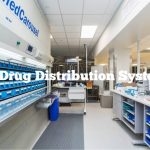8 Reasons For Compounding In Pharmacy

What is a Compounding Pharmacy?
A compounding pharmacy is a specialized type of pharmacy that focuses on preparing customized medications to meet the unique needs of individual patients. Unlike traditional pharmacies that dispense commercially available medications, compounding pharmacies create tailored formulations to address specific medical requirements, allergies, dosage strengths, or preferences. These customized medications are typically prepared under the guidance of a licensed pharmacist and can be formulated in various dosage forms such as creams, gels, capsules, liquids, or suppositories.
The need for compounding pharmacies arises when patients cannot use or tolerate mass-produced medications due to various reasons. For instance, some patients may be allergic to certain ingredients commonly found in commercial drugs, while others may require a specific dosage that is not commercially available. Compounding pharmacies play a crucial role in fulfilling these therapeutic gaps and enhancing patient outcomes by offering personalized solutions.
Compounding pharmacists undergo specialized training to understand the science behind creating unique pharmaceutical formulations. They work closely with healthcare providers and patients to assess individual requirements and develop medications tailored to the specific medical condition. The ingredients used in compounding are typically sourced from approved pharmaceutical suppliers and undergo rigorous testing to ensure safety, potency, and purity.
The practice of compounding dates back to ancient times when all medications were prepared individually for each patient. Today, while mass production has become the norm, compounding pharmacies continue to be essential in catering to the diverse needs of patients with specific medical demands. They provide a vital service in the healthcare industry by delivering personalized medications that are not available through standard pharmaceutical channels. However, it is important to note that compounding pharmacies operate under strict regulations and guidelines set forth by the respective health authorities to ensure patient safety and product quality.
Reasons For Compounding In Pharmacy
Compounding in pharmacy serves several important purposes, providing valuable solutions to patients, healthcare providers, and the overall healthcare system. Here are some detailed reasons for compounding:
1. Personalized Medications: One of the primary reasons for compounding is to create personalized medications tailored to the specific needs of individual patients. Patients vary in age, weight, allergies, and health conditions, and sometimes commercially available medications may not be suitable for them. Compounding pharmacists can adjust the dosage, remove allergens, or create alternative forms of medications to make them easier to take, enhancing treatment adherence and effectiveness.
2. Allergies and Sensitivities: Many patients have allergies or sensitivities to certain ingredients commonly found in mass-produced medications, such as dyes, preservatives, or fillers. Compounding allows pharmacists to create medications without these problematic components, reducing the risk of adverse reactions and ensuring patient safety.
3. Pediatric and Geriatric Patients: Children and elderly patients often have difficulty swallowing pills or may require lower dosages than what is commercially available. Compounding allows pharmacists to prepare medications in more palatable forms, such as liquids, gummies, or topical creams, making it easier for these vulnerable populations to take their prescribed medications.
4. Discontinued or Unavailable Medications: Sometimes, pharmaceutical companies discontinue the production of certain medications due to low demand or other reasons. However, some patients may still benefit from these medications. In such cases, compounding pharmacies can recreate the medication’s formulation to ensure continued access to necessary treatments.
5. Combination Medications: Some medical conditions require multiple medications to be taken together for better treatment outcomes. Compounding pharmacies can combine compatible medications into a single dose, simplifying the medication regimen and improving patient compliance.
6. Veterinary Compounding: Compounding is not limited to human medications; it also extends to veterinary medicine. Animals, like humans, have unique healthcare needs, and compounding allows veterinarians to administer medications in forms and dosages suitable for different animal species.
7. Hormone Replacement Therapy (HRT): Compounding pharmacies play a significant role in hormone replacement therapy, particularly for individuals with hormone imbalances or those undergoing gender-affirming treatments. Compounded hormones can be tailored to meet individual requirements and achieve optimal hormone levels.
8. Dermatological Conditions: For skin conditions like psoriasis, eczema, or acne, compounding pharmacists can create customized topical medications that match the specific needs of the patient’s skin type and the severity of the condition.
It’s essential to note that compounding pharmacies must comply with strict regulations and quality standards to ensure patient safety and product efficacy. Pharmacists in compounding facilities must undergo specialized training to carry out these customized preparations accurately and professionally. Additionally, communication and collaboration between compounding pharmacists, healthcare providers, and patients are critical to achieving the best possible treatment outcomes.
Disadvantages of Compounding Pharmacy
While compounding pharmacies offer valuable services, there are also some disadvantages and potential risks associated with their practice. Here are some of the disadvantages of compounding pharmacies:
1. Lack of FDA Approval: Unlike commercially manufactured medications that undergo rigorous testing and approval by the U.S. Food and Drug Administration (FDA) or other regulatory bodies in different countries, compounded medications are not subject to the same level of scrutiny. While compounding pharmacies must comply with certain regulations, the individual compounded products do not go through the same extensive testing and evaluation as mass-produced drugs, potentially raising concerns about their safety and efficacy.
2. Quality Control Issues: Compounding pharmacies must adhere to strict quality standards, but there have been instances of errors or contamination in compounded medications. The lack of centralized oversight for compounded products can lead to variability in the quality and potency of the final medications, increasing the risk of adverse reactions or treatment failures.
3. Limited Research and Evidence: Compounded medications often lack the extensive clinical trials and research that commercially available drugs undergo. As a result, there may be limited evidence supporting the safety and effectiveness of specific compounded formulations, making it challenging for healthcare providers to confidently recommend them.
4. Drug Interactions and Stability: Combining multiple medications or altering drug formulations can lead to unpredictable drug interactions or decreased stability of the compounded products. These issues can impact the overall safety and reliability of the treatment.
5. Cost and Insurance Coverage: Compounded medications can be more expensive than their commercially available counterparts, primarily due to the personalized nature of the formulations and the resources required for preparation. Additionally, not all insurance plans cover compounded medications, leaving some patients to bear the full cost of their treatment.
6. Unregulated Compounding Practices: In some cases, compounding pharmacies may engage in illegal or unregulated practices, leading to potential safety and quality concerns. While reputable compounding pharmacies adhere to strict guidelines, unscrupulous operators may put patients at risk by not following proper protocols or using substandard ingredients.
7. Misuse and Abuses: While compounding serves legitimate medical needs, there have been instances where compounding has been exploited for fraudulent purposes. For example, some unscrupulous practitioners have used compounding to create mass-produced medications under the guise of customization to avoid regulatory oversight or profit from the higher reimbursement rates for compounded medications.
It’s essential to understand that the majority of compounding pharmacies are committed to patient safety and quality care. However, patients and healthcare providers must exercise caution, seek information, and collaborate with reputable compounding pharmacies to ensure the safe and effective use of compounded medications. Regular communication with healthcare professionals can help identify potential risks and benefits of using compounded medications in individual cases.





